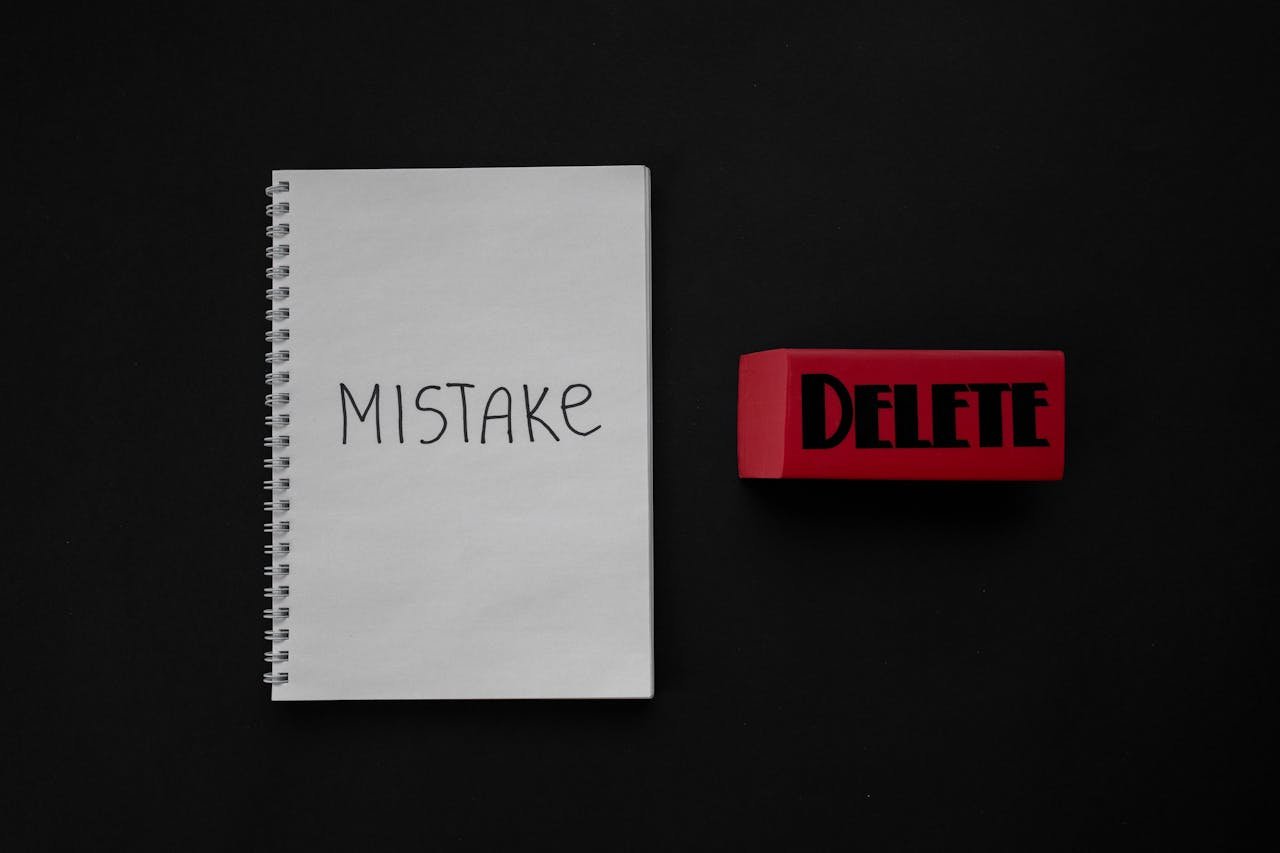(And How to Avoid Them Without Giving Up on Life)
The Decade of Freedom, Fun, and… Financial Fumbles
Your twenties are supposed to be the time of your life.
You’re finally out of school (or almost), testing your wings, maybe moving into your first apartment, landing that exciting new job, and exploring who you really are. It’s a time filled with adventures, coffee-fueled hustle, and—let’s face it—some epic budgeting fails.
Most people in their 20s don’t get formal financial education. Schools rarely teach how credit works, how to file taxes, or why compound interest is a magical unicorn. And so, many stumble into adulthood making the same costly money mistakes their peers did—and often don’t realize the damage until their 30s or 40s.
But here’s the silver lining: when caught early, financial mistakes in your 20s are reversible, and more importantly, preventable.
So let’s dive into the 5 most common financial mistakes people make in their twenties, and how you can steer clear of them without sacrificing your social life or your sanity.
1. Living Beyond Your Means (Thanks, Instagram)
The Problem:
You earn $2,500 a month, but your lifestyle screams $4,000. Fancy dinners, weekend trips, spontaneous shopping hauls, and the latest iPhone—your bank account is begging for mercy, but your social media game is fire.
Too many young adults fall into the “comparison trap” fueled by influencers, peers, and FOMO. It’s easy to forget that most people only share their highlights, not the credit card bills or financial stress behind the scenes.
Why It Hurts:
Overspending leads to credit card debt, living paycheck-to-paycheck, and having no buffer when unexpected costs hit. It also robs you of future financial freedom.
Real Example:
Lena, 24, had a great job and a growing wardrobe—but zero savings. When her car broke down, she had to finance the repairs with a high-interest loan. It took her 10 months to recover from that emergency—all because she hadn’t set aside even $500.
How to Avoid It:
- Track your spending with budgeting apps like Mint, YNAB, or PocketGuard.
- Set a fun budget so you can enjoy guilt-free spending within limits.
- Remember: Being broke and pretending you’re rich is the most expensive game you can play.
2. Avoiding or Misusing Credit Cards
The Problem:
Some avoid credit cards altogether, terrified of going into debt. Others use them like magic wands, buying now and worrying later.
Both extremes can backfire.
A credit card, when used wisely, is a powerful tool. It helps you build credit history, unlock travel points or cashback, and gives you a buffer in emergencies. But swipe recklessly, and you’re in deep trouble.
Why It Hurts:
Bad credit decisions in your 20s can haunt you for years. Low credit scores can:
- Increase interest rates on loans
- Hurt your chances of renting an apartment
- Even impact job applications in some fields
How to Avoid It:
- Use only what you can pay off in full each month. Never treat your credit limit as extra money.
- Pay on time—always. Even one missed payment can damage your score.
- Start with a student or secured credit card to build trust with lenders.
- Use tools like Credit Karma or Experian Boost to track and improve your score for free.
💡 Pro Tip: Keep your credit usage under 30% of your available limit. Ideally, stay under 10%.
3. Neglecting Emergency Savings
The Problem:
You get your paycheck, cover rent, grab some takeout, buy a few things online, and before you know it—boom—zero left to save.
Emergency funds aren’t sexy, but they are absolutely essential. Without one, a single unexpected expense—a hospital visit, job loss, laptop crash—can derail your entire life.
Why It Hurts:
Without a cushion, you’re forced to rely on credit cards, personal loans, or family bailouts when things go sideways. That leads to stress, debt, and less financial independence.
How Much to Save?
Aim for $500–$1,000 to start, then slowly build to 3–6 months of expenses.
Where to Save It?
Keep your emergency fund in a high-yield savings account—separate from your checking account so you’re not tempted to dip into it for pizza.
🛠 Apps like Qapital or Chime automate your savings by rounding up your purchases or transferring small amounts weekly.
4. Not Starting to Invest Early
The Problem:
You tell yourself, “I’ll start investing when I make more money.” You prioritize instant gratification—concerts, gadgets, trendy clothes—because retirement feels like a distant dream.
But guess what? Time is your biggest financial asset.
Thanks to compound interest, even small amounts invested in your 20s grow exponentially compared to larger amounts invested later.
Real Example:
Emma invests $50/month starting at age 22 and stops at 32. Jake starts investing $150/month at age 32 and continues until 62.
By age 62, Emma has more money, even though she invested for only 10 years.
How to Avoid It:
- Open a Roth IRA or retirement account ASAP, even if you’re just contributing $25/month.
- Use micro-investing apps like Acorns, Robinhood, or Fidelity Spire.
- Take advantage of employer 401(k) matches—it’s free money!
📚 Bonus: Follow creators like Clever Girl Finance or The Budgetnista for beginner-friendly investing tips.
5. Not Learning Basic Financial Skills
The Problem:
You avoid personal finance the way some people avoid going to the dentist. You think budgeting is boring, investing is intimidating, and taxes are someone else’s problem.
But here’s the reality: if you don’t learn to manage your money, someone else will—usually to their benefit, not yours.
Financial literacy is not optional. It’s as essential as knowing how to cook or clean.
Why It Hurts:
Ignorance leads to:
- Overdraft fees
- Bad credit decisions
- Getting scammed
- Overspending on rent, insurance, or loans
- Being broke at 30 with no idea where your money went
How to Avoid It:
- Read books like “I Will Teach You to Be Rich” by Ramit Sethi or “Your Money or Your Life” by Vicki Robin.
- Follow financial YouTubers or TikTok creators who explain things in simple terms.
- Take free online courses on Coursera, edX, or Khan Academy.
🎓 Financial education is the best investment you’ll ever make—and you’ll never lose value on it.
Conclusion: Your 20s Are the Best Time to Build Wealth—Start Now
Here’s the good news: mistakes made in your 20s don’t have to define your future. In fact, this is the perfect time to learn, reset, and get ahead.
Instead of seeing money management as restrictive, reframe it as freedom planning. Every dollar you save or invest today buys you time, flexibility, and freedom tomorrow.
Start with small steps:
- Save $10 a week
- Pay your credit card on time
- Cook one more meal at home this week
- Download a free budgeting app
And most importantly, give yourself grace. No one has it all figured out at 23. But if you take financial growth seriously now, your 30s and 40s will be so much easier—and a lot richer.
Useful Tools to Help You Avoid These Mistakes:
- 💳 Credit Karma – Free credit monitoring
- 💰 Chime – Banking with auto-savings
- 📈 Acorns – Beginner investing
- 📖 I Will Teach You to Be Rich – Financial literacy book
- 📱 YNAB – Best-in-class budgeting app




